Branched-chain amino acid (BCAA) supplements have been around for over two decades now. If you've ever seriously lifted weights, you've almost certainly taken BCAAs at some point.
While BCAAs are technically dietary proteins, they have a disproportionately large impact on the body's anabolic response compared to other proteins. That's because they activate key informational switches that press anabolic hormones into the service of muscle protein synthesis.
The primary switch in question is called mammalian target of rapamycin (mTOR). Put simply, when mTOR is activated, your body makes new cells,[1] and when mTOR is inhibited, it actually breaks down existing cells through processes like autophagy and apoptosis.[2]
Of course, cellular growth and proliferation need to be balanced – it's not good for mTOR to be active all the time. But when it comes to building muscle following a workout, mTOR upregulation is key.
Of the three BCAAs – leucine, isoleucine, and valine – leucine is the best at activating mTOR and hence, the most anabolic.[3-6] In fact, some research has shown that leucine alone activates the anabolic response.[7]
Dileucine: Leucine's More Anabolic Replacement
Muscle-building supplement formulators often push towards heavier leucine use. This makes good sense, since leucine is basically the most anabolic amino acid.
However, leucine's reign may prove to be shorter than expected. Not because it's bad, but because researchers have found an even more anabolic leucine-based amino acid – or, more accurately, complex of amino acids.
That molecule is dileucine.
Meet MuscleTech Peptide 185, Powered by Dileucine
Technically, dileucine is a peptide, which is a short chain of anywhere between two and 50 amino acids. In this case, as you probably guessed from the name, dileucine consists of two leucine molecules.
Yes, that's right, research shows that two leucine molecules linked together works better at building muscle than one leucine on its own. Seen a certain way, this may seem hilariously obvious, but when you see how it's pound-for-pound more potent than leucine, the situation gets a lot more interesting.

It's another first-to-market ingredient launched by MuscleTech, who did it in 2022 with enfinity paraxanthine in the EuphoriQ pre-workout as well!
Now, thanks to MuscleTech, dileucine is available for sale to consumers as Peptide 185, sold as capsules with three capsules per serving to achieve the human clinical dose.
This isn't the first time we've seen them bring a novel ingredient to market, either -- they were first to bring enfinity paraxanthine in their iQ Series of supplements as well! We think this one may fare just as well, if not better.
This article gets into the existing research on dileucine, but first, check PricePlow's availability and sign up for our MuscleTech news and deal alerts so that you don't miss more news and stock alerts on Peptide 185:
MuscleTech Peptide 185 – Deals and Price Drop Alerts
Get Price Alerts
No spam, no scams.
Disclosure: PricePlow relies on pricing from stores with which we have a business relationship. We work hard to keep pricing current, but you may find a better offer.
Posts are sponsored in part by the retailers and/or brands listed on this page.
This area is reserved for Team PricePlow's upcoming Product Introduction video.
Subscribe to our channel and sign up for notifications so you catch it when it goes live!
MuscleTech Peptide 185 Ingredients
In a single 3-capsule serving of Peptide 185 from MuscleTech, you get the following:
-
DL-185 Dileucine (L-Leucyl-L-Leucine Monohydrate) – 2,000 mg
If we want to understand why dileucine helps build muscle, we should ask what role this peptide plays in human physiology under normal conditions. Does it occur naturally in the human body?
Yes, it does. Although you might expect digestion to break down amino acids like leucine into simpler parts, research has shown that the main products of gastrointestinal BCAA metabolism are actually peptides that contain the BCAAs as building blocks. One of these natural peptide metabolites is – you guessed it – dileucine.[6]
This means that the body goes out of its way to package leucine into dileucine. Given that the body is generally "lazy", it would only do this if there was a really good reason for it.
It turns out that these peptide metabolites are responsible for much of the BCAA's anabolic effect.[6] The more of these peptides you have circulating in your blood, the more efficiently your body can build muscle.
So, if we want to compare the effectiveness of oral leucine vs. oral dileucine supplementation, one way to do it might be seeing which supplement increases serum dileucine levels most effectively.
And that's exactly what a team of researchers set out to do in 2021.
Leucine vs. Dileucine in research
In an experiment detailed in the Journal of Applied Physiology, researchers recruited 10 healthy young men with an average age of 23 to compare 2 grams of leucine against 2 grams of dileucine. After providing it for breakfast, they then measured several dimensions of the subjects' postprandial response to the treatment conditions.[9]
Raza Bashir of MuscleTech and Shawn Wells of Ingenious Ingredients join the PricePlow Podcast for Episode #123 to discuss the new dileucine ingredient in Peptide 185!
In the days leading up to the trial, the subjects were instructed to refrain from alcohol consumption, which can decrease muscle protein synthesis, and from exercise, which can increase it. They even gave the two groups an identical dinner the night before the test, which occurred at 7 a.m. the following morning.[9] The researchers took pains to isolate the treatment condition as the sole variable in the subjects' muscle turnover activity after ingestion.
Although the sample size was relatively small, the study design was robust – it was a randomized, double-blind, crossover study, meaning the subjects completed the study twice — once for each treatment condition. That is, in the first round group A got the dileucine and group B got the leucine, then when the study protocol was repeated, group B got the dileucine and group A the leucine.
Crossover studies are a good way to make up for small sample sizes, and thanks to this study design, the effective sample size in each group was 20 instead of 10.[9]
Compared to oral leucine supplementation, oral dileucine supplementation increased serum dileucine concentration more effectively.[9]
The researchers found that the dileucine supplement raised dileucine blood levels more effectively than the leucine supplement.
While this result is great, it's also expected. So your next question is likely: So what? Did more dileucine in the blood translate to faster muscle protein synthesis?
Fortunately, the researchers looked at that too:
Oral dileucine supplementation increased fractional synthesis rate (FSR). Post-hoc analysis revealed no statistical difference in fractional breakdown rate (FBR).[9]
At first glance, it might appear that our inset graph is showing an increase in fractional synthesis rate (FSR), which is basically muscle building and fractional breakdown rate (FBR), which is muscle breakdown.
However, statistical analysis reveals that only the difference in FSR was significant. Here's a quote from the abstract:
"Cumulative (0–180 min) MPS increased in DILEU (0.075 ± 0.032%·h1), but not in LEU (0.047 ± 0.029%·h1; P = 0.023). MPB did not differ between LEU (0.043 ± 0.030%·h1) and DILEU conditions (0.051 ± 0.027%·h1; P = 0.659)."[9]
If that's confusing, the bottom line is that dileucine had a greater net anabolic effect compared to leucine. In fact, parsing the numbers in that quoted excerpt, we see that the dileucine increased MPS by roughly 160% compared to baseline, and roughly 60% more than leucine![9]
The authors conclude the paper by recommending that dileucine be explored as a food additive for populations at high risk of sarcopenia (age-related muscle wasting).[9] But we know where those types of results often lead... so researchers continued to press on:
ISSN 2023: 2g Dileucine vs. Leucine in 32 Resistance-Trained Males
In another study, which was presented in 2023 at the 20th International Society of Sports Nutrition (ISSN) Conference, 32 resistance-trained males with an average age of 28 were randomly assigned to receive either 2 grams of dileucine, 2 grams of leucine, or 2 grams of resistant starch (which served as a placebo control) for 10 weeks.[8,10]
While taking their assigned treatment condition, the subjects carried out a 4-day-per-week bodybuilding split workout routine, designed to hit every major muscle group with 3-4 sets of 6-10 repetitions. This was covered in two separate presentations at ISSN 2023.[8,10]
The researchers tracked changes in one-repetition maximum (1RM) and repetitions to failure (RTF) using the leg press (LP) and bench press (BP) exercises, as well as anaerobic capacity using the Wingate test and maximal voluntary contractions (MVC) using an isometric mid-thigh pull.[8]
In terms of strength, the study found no significant difference between leucine and the placebo. However, dileucine improved the subjects' lower body maximal strength and maximum number of leg press repetitions before failure.[8]
The researchers also assessed the subjects' body composition at weeks 0, 2, 6, and 10 using DEXA scan, finding no significant differences there.[10] However, the strength gains found are quite promising!
Generally, ISSN poster presentations get published in peer-reviewed journals later on in time, so make sure you stay tuned to PricePlow to learn when more details can be shared.
University of Toronto: 2g Dileucine + 1g Leucine vs. 6g 2:1:1 BCAA vs. Collagen
Finally, we have a third study carried out by the Faculty of Kinesiology and Physical Education at Canada's University of Toronto.[11]
While this study is interesting, and we can't see anything wrong with its design, we are nonetheless obliged to point out that it hasn't yet been published in an academic journal, meaning it hasn't gone through the peer review process. You, the reader, will have to decide how much you care about this.
With that disclaimer out of the way, let's talk about the study.
This was another randomized, double-blind, crossover study. Twelve healthy adults – 8 men and 4 women – with an average age of 24 carried out roughly an hour of whole-body resistance training, after which they ingested one of three drinks containing:[11]
- 2 grams of dileucine and 1 gram of leucine (DIEAA)
- 3 grams of leucine, 1.5 grams of isoleucine, and 1.5 grams of valine (BCAA)
- Isonitrogenous serving of collagen protein (COL)
Isotope Tracked to Measure Leucine Retention
A clever aspect of this study design was the use of a leucine isotope to track how the subjects metabolized leucine under each treatment condition. Each drink contained 100 milligrams of the isotope, and the researchers used a breath test to measure how much of this isotope each group was exhaling for up to six hours after ingestion.[11]
Using the exhalation rate of this isotope as a measure of leucine oxidation, the researchers subtracted that oxidation from the subjects' leucine intake. The resulting difference was taken as their leucine retention – i.e., the amount of leucine they were actually using to build new muscle.[11]
The provision of DIEAA, but not BCAA, significantly reduced muscle breakdown in response to whole-body resistance training.[11]
Not only did the DIEAA group show much greater leucine retention, they also suffered a lot less muscle protein breakdown in response to the exercise bout.[11] Both factors should contribute significantly to net muscle increase.
While much of this is not yet published in peer-reviewed journals, we're confident that it's certainly coming, and will keep PricePlow Nation apprised as it happens.
It should also be noted that MuscleTech Peptide does not contain the extra gram of leucine that was used in this study, but we're pretty sure anyone reading this knows how to find some leucine if wanting to replicate this study!
Listen to our Peptide 185 Podcast Episode
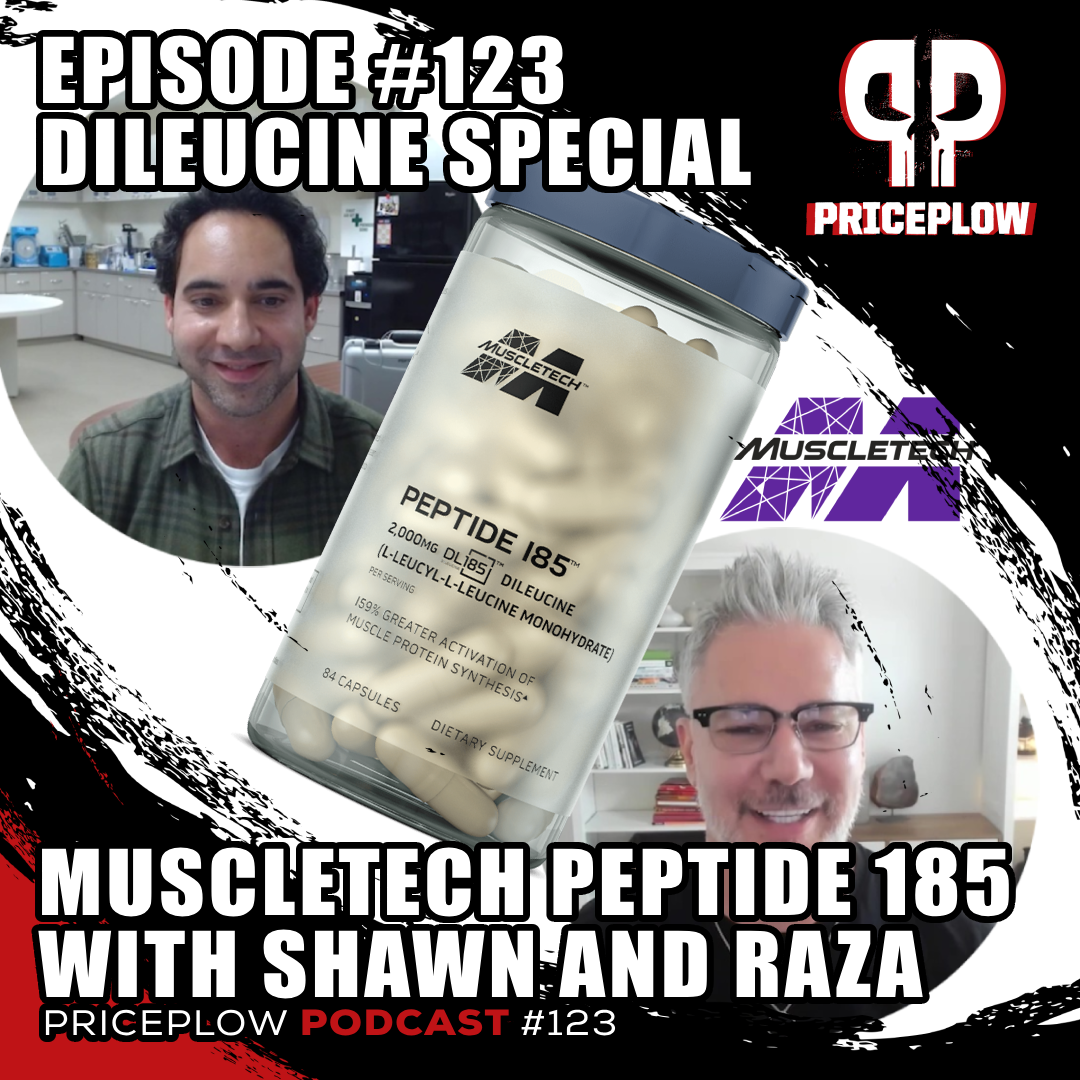
Raza Bashir of MuscleTech and Shawn Wells of Ingenious Ingredients join the PricePlow Podcast for Episode #123 to discuss the new dileucine ingredient in Peptide 185!
Want to listen to more from MuscleTech's VP of Scientific Affairs and one of the developers of the dileucine ingredient? Then check out Episode #123 with Raza Bashir & Shawn Wells on the PricePlow Podcast!
Dosage and Directions
Per the bottle's instructions, take one serving (3 capsules) once daily with water. That isn't very specific, however, so we're thinking that taking it first thing in the morning is also a great strategy, to kickstart muscle protein synthesis right away.
If you already take amino acids, adding Peptide 185 alongside them could be a good strategy as well - but it makes sense to do it earlier in the day as opposed to later.
Conclusion: Another novel ingredient introduced by MuscleTech
Peptide 185 stands at the conjunction of two industry initiatives – first, in the last couple of years, we've seen a veritable peptide-palooza, with tons of money going into very sophisticated R&D aimed at identifying points of maximum informational leverage in the human body's anabolic machinery. Peptide 185 is at least as exciting an entry into this contest as any we've seen.
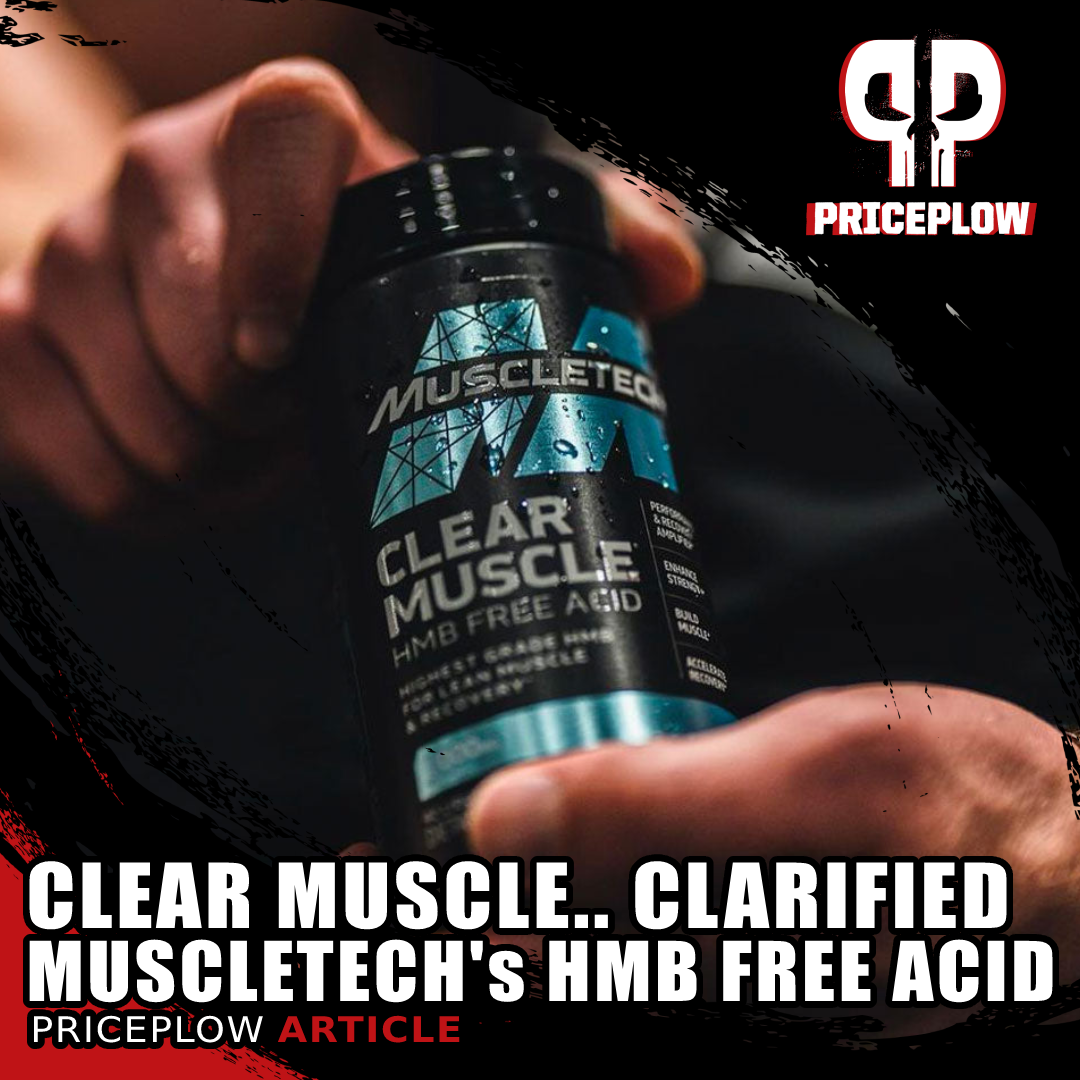
What is MuscleTech's Clear Muscle? It's a muscle health supplement using BetaTOR (HMB Free Acid) and some betaine to get you back into the gains territory after super hard training!
Second, there's some precedent for using leucine metabolites as a superior alternative to leucine itself. For example, back in April 2023, we wrote about MuscleTech Clear Muscle, which uses leucine metabolite beta-hydroxy-beta-methylbutyrate (HMB) to build muscle through mTOR activation.
While there haven't been a ton of published studies so far, the research we've seen has been solidly designed. Bottom line, we think this is an ingredient that's going to make waves in the industry, and find itself next to leucine -- and eventually replacing it -- in many situations.
But for 2024, MuscleTech Peptide 185 is the place to try it.
MuscleTech Peptide 185 – Deals and Price Drop Alerts
Get Price Alerts
No spam, no scams.
Disclosure: PricePlow relies on pricing from stores with which we have a business relationship. We work hard to keep pricing current, but you may find a better offer.
Posts are sponsored in part by the retailers and/or brands listed on this page.
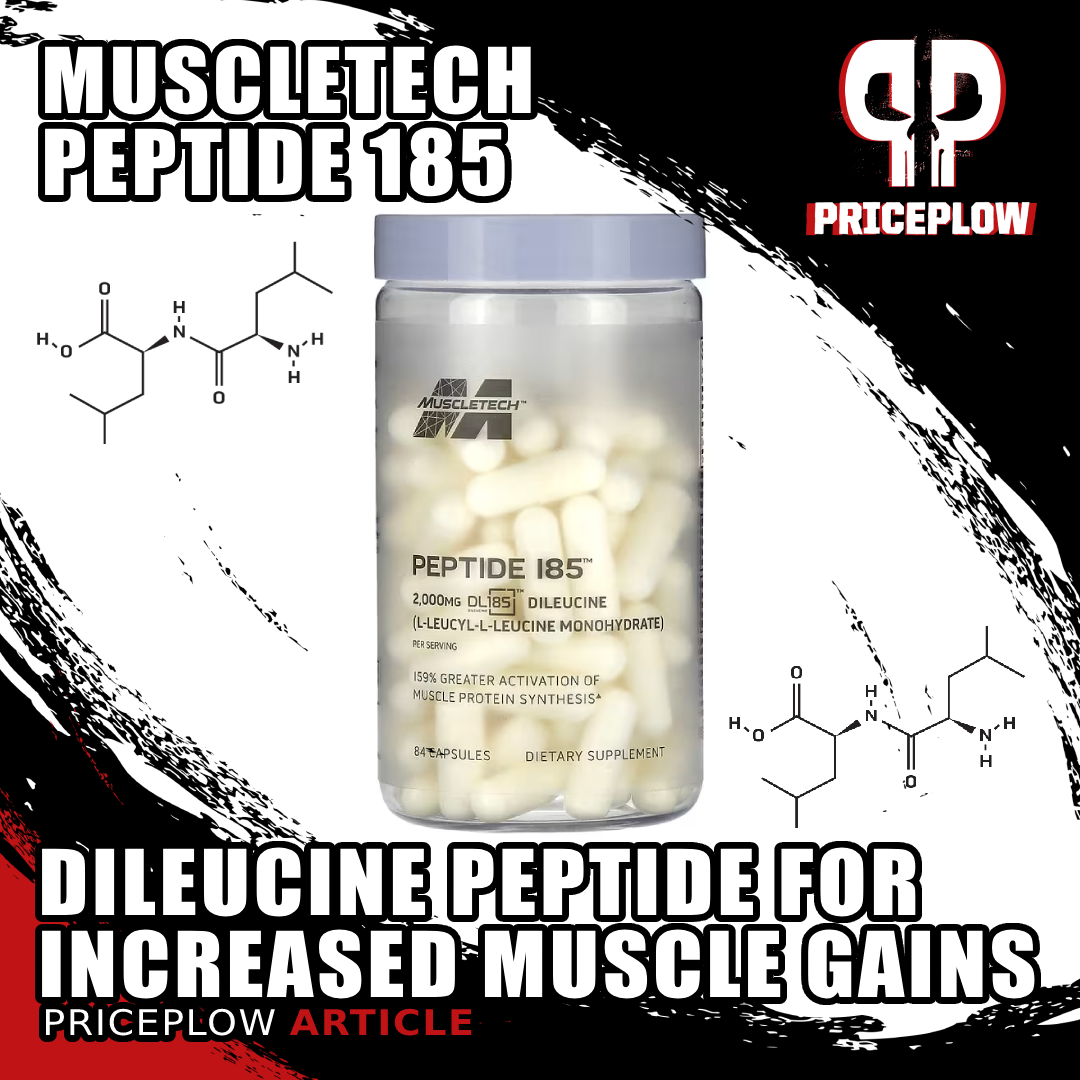
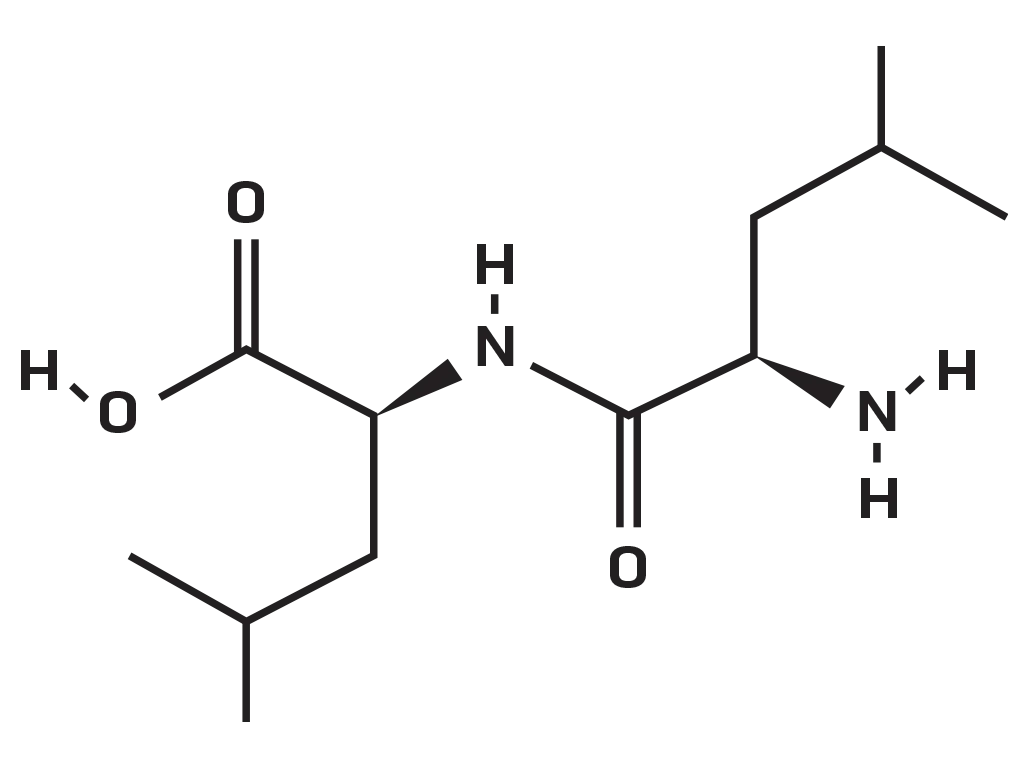
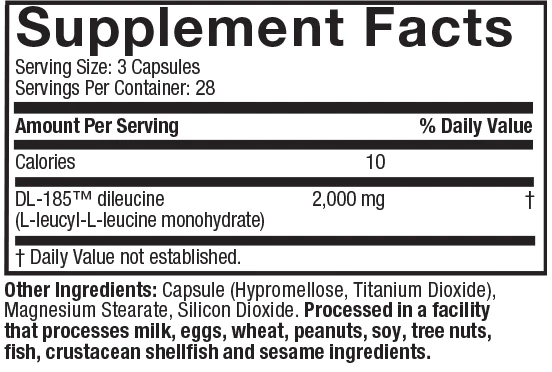
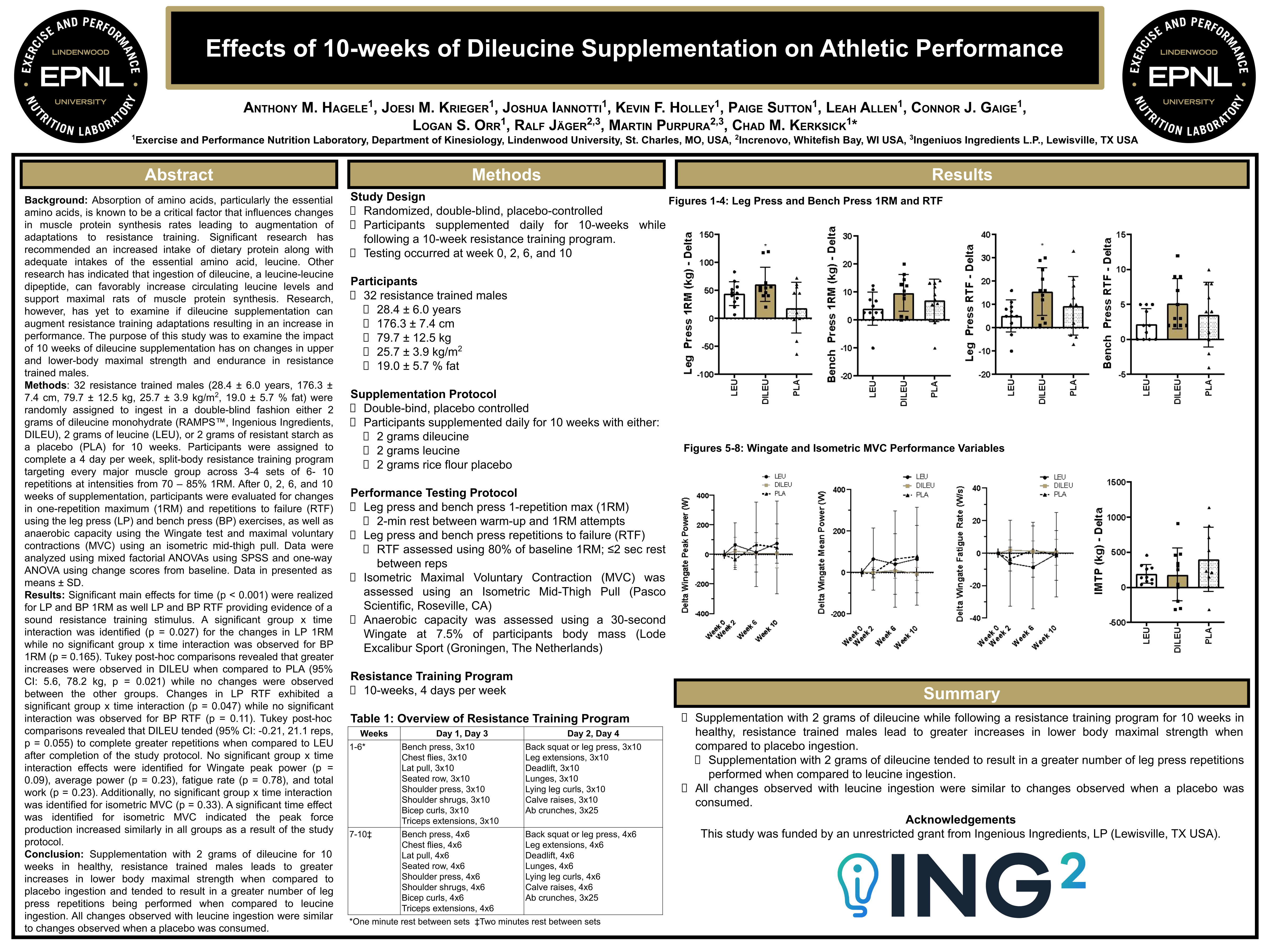
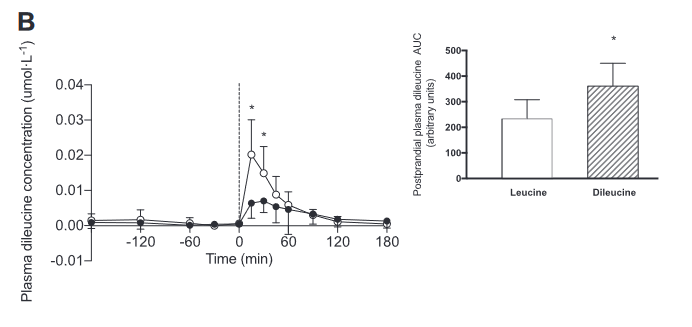
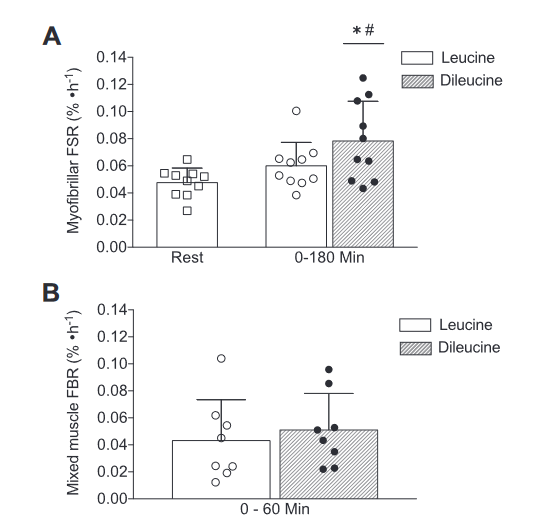

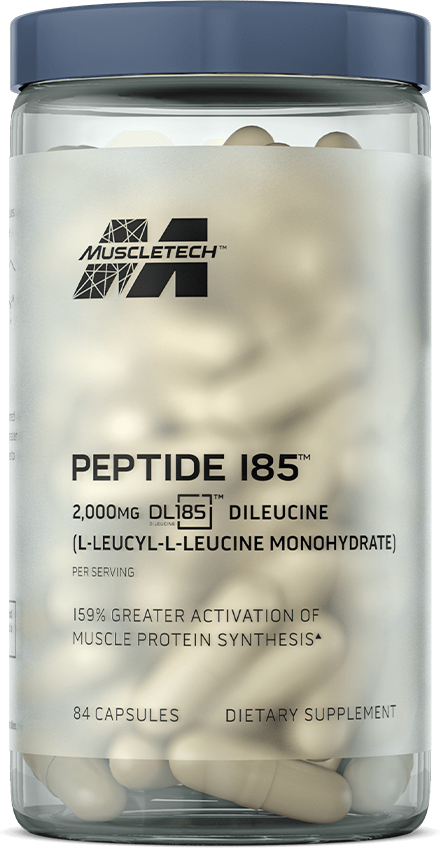
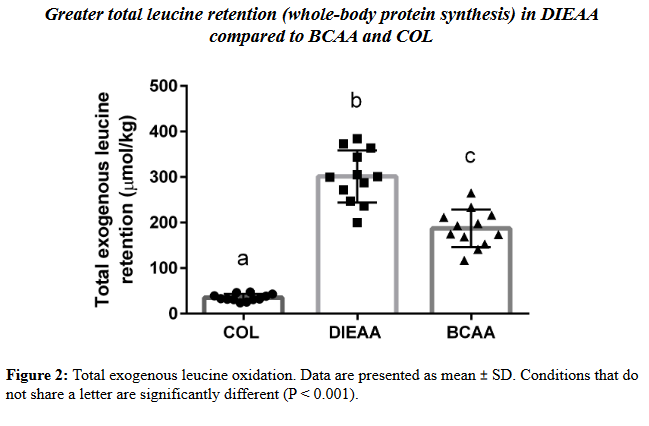
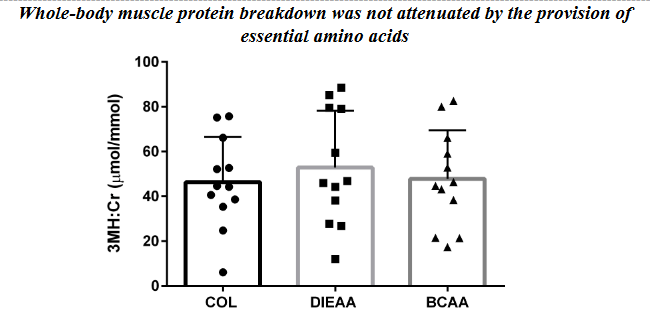


Comments and Discussion (Powered by the PricePlow Forum)